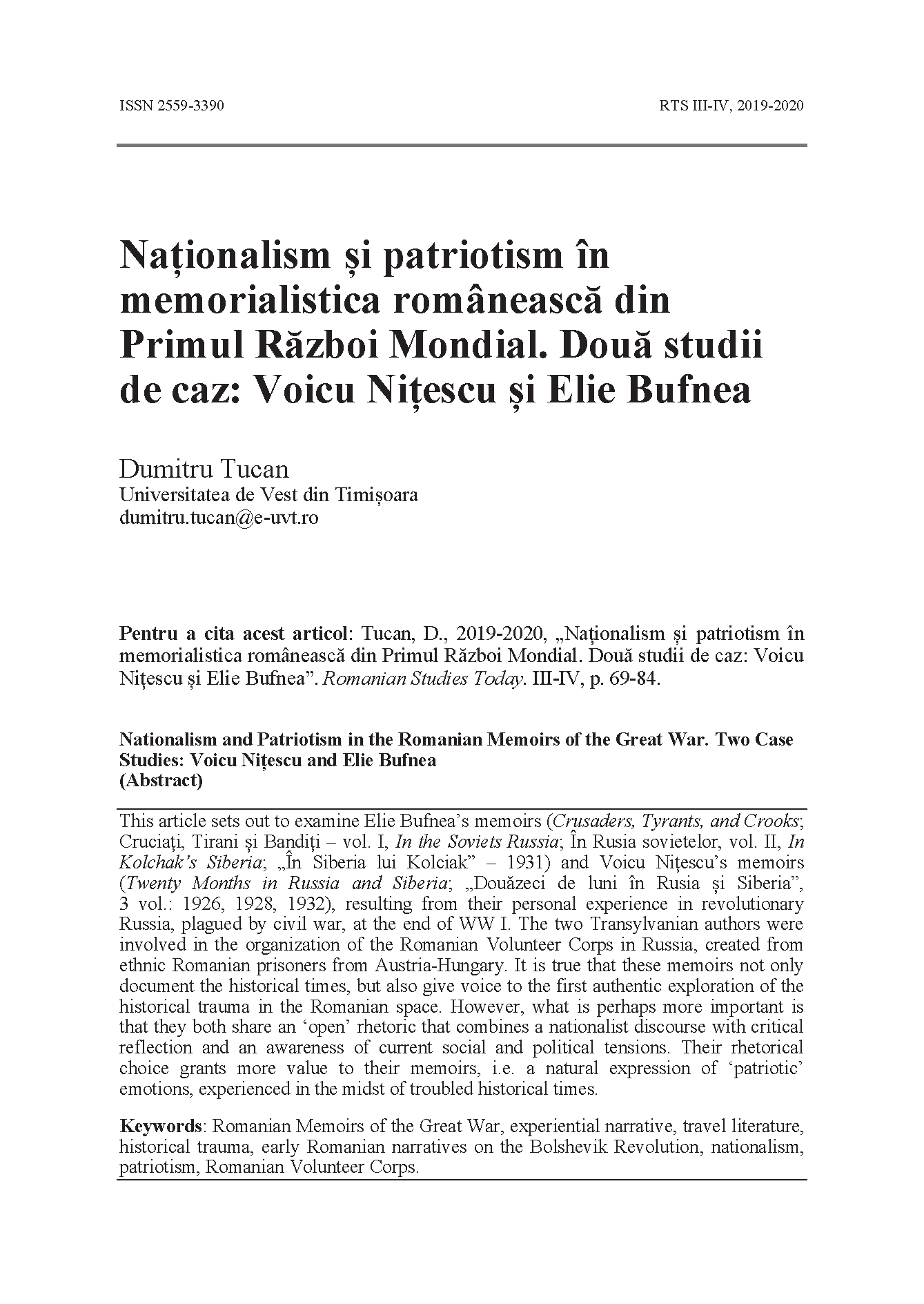Naționalism și patriotism în memorialistica românească din Primul Război Mondial. Două studii de caz: Voicu Nițescu și Elie Bufnea
DOI:
https://doi.org/10.62229/rst/3.4.1/8Cuvinte cheie:
Romanian Memoirs of the Great War, experiential narrative, travel literature, historical trauma, early Romanian narratives on the Bolshevik Revolution, nationalism, patriotism, Romanian Volunteer CorpsRezumat
This article sets out to examine Elie Bufnea’s memoirs (Crusaders, Tyrants, and Crooks; Cruciați, Tirani și Bandiți – vol. I, In the Soviets Russia; În Rusia sovietelor, vol. II, In Kolchak’s Siberia; „În Siberia lui Kolciak” – 1931) and Voicu Nițescu’s memoirs (Twenty Months in Russia and Siberia; „Douăzeci de luni în Rusia și Siberia”, 3 vol.: 1926, 1928, 1932), resulting from their personal experience in revolutionary Russia, plagued by civil war, at the end of WW I. The two Transylvanian authors were involved in the organization of the Romanian Volunteer Corps in Russia, created from ethnic Romanian prisoners from Austria-Hungary. It is true that these memoirs not only document the historical times, but also give voice to the first authentic exploration of the historical trauma in the Romanian space. However, what is perhaps more important is that they both share an ‘open’ rhetoric that combines a nationalist discourse with critical reflection and an awareness of current social and political tensions. Their rhetorical choice grants more value to their memoirs, i.e. a natural expression of ‘patriotic’ emotions, experienced in the midst of troubled historical times.




